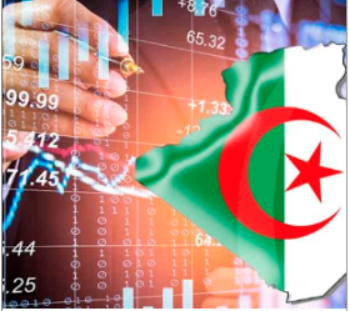Physical Address
Indirizzo: Via Mario Greco 60, Buttigliera Alta, 10090, Torino, Italy
Physical Address
Indirizzo: Via Mario Greco 60, Buttigliera Alta, 10090, Torino, Italy


Since July 1, 2024, Algeria has been classified as an upper-middle-income country and no longer as a lower-middle-income country as was the case previously.
This new ranking follows the new update of the World Bank (WB) of the economies of its member countries. This information given on the website of the Algerian Ministry of Finance specifies that the Gross National Income (GNI) per capita increased from $3,900 between July 1, 2022 and June 2023 to $4,960 between July 1, 2023 and June 30, 2024. The Ministry of Finance explains that this increase in Algeria’s ranking results from “the complete revision of national accounts statistics (rebasing), undertaken by the National Statistics Office (ONS), with the aim of aligning with current international standards.
This new ranking comes less than three months after a report from the International Monetary Fund (IMF) positioned Algeria as the third African economy after South Africa and Egypt for the year 2024. This report specifies that “Egypt, which had briefly reached the top of the ranking in 2023, is expected to give way to South Africa in 2024, while Nigeria, formerly second, would slide to fourth position.
“This redistribution of economic power is the direct result of the currency devaluations and persistent inflation that have afflicted several African countries in recent months,” said the Bretton Woods institution.
In figures, the IMF forecasts a gross domestic product of $267 billion for Algeria by 2024, $253 billion for Nigeria, $343 billion for Egypt and finally $373 billion for South Africa. In this new ranking, Ethiopia occupies fifth position with a GDP of $205 billion while Morocco plummets to sixth place with only $157 billion.
As a reminder and at the beginning of 2023, the President
Tebboune told the press that Algeria’s domestic product could be between 240 and 245 billion dollars. This statement sparked many comments and analyses casting doubt on the figures put forward by the President.
In 2024, the IMF report does more than confirm the figure put forward by the Algerian President, the GDP would be 267 billion dollars. The upward revision of the country’s gross domestic product comes after the change of the reference year for its calculation (rebasing) from 2022. Previously, the base year for the calculation was 1989. From 2022, the assessment took 2001 as the reference year. This change of reference will allow the country’s GDP to increase from 163.5 billion dollars in 2021 to 233 billion dollars in 2022. An increase of 12.8%.
In its February 2023 report, the UN Economic and Social Council wrote in this sense that “rebasing (or changing the base/reference year) is important because it allows, within the framework of statistics, to take into account the latest structural changes, basic prices and inflation trends.” Before specifying that this operation “is a complex procedure that requires the participation and support of data providers, data users and other stakeholders.”
In the table annexed to this UN document, it appears that Algeria had the most distant base year (2001) in the calculation of its GDP. South Africa’s base year was 2010, Egypt’s 2012 and Nigeria’s 2010. This data will lead the High Commissioner for Digitalization, Meriem Benmouloud, to say at a meeting held in mid-December 2023 “that a new change in the reference year for calculating the gross domestic product will be made in 2024 to move from the 2001 to 2011 reference year.” An approach which, according to the minister, aims to adapt to the reference years in force at the international level. Therefore, “the improvement of the methodology for accessing and processing information sources through the exploitation of the dynamic statistics platform” will allow the country to make at least two changes to the base year for calculating its GDP by 2027.
The other significant factor in the formation of GDP remains growth. Since 2021, the Algerian economy has been experiencing strong growth. Thus, growth was 3.8% in 2021, 3.6% in 2022 and 4.1% in 2023. And an increase of 4% is expected in 2024.
It should also be noted that this growth should be maintained at a sustained level with the entry into production of several structuring mining projects such as Gara Djebilet, lead and zinc of Oued Amizour and integrated phosphate of Tébessa. The development of half a million hectares of new agricultural land in the Grand Sud would also provide certain added value to the national economy. Not to mention the gigantic projects in housing, railways and basic infrastructure which, once completed, will make Algeria an emerging country in 2027.
During his meeting with students on May 19, the President of the Republic announced a GDP of 400 billion dollars by 2027. And at first glance, this objective seems largely within Algeria’s reach.
Mr. Chermat